
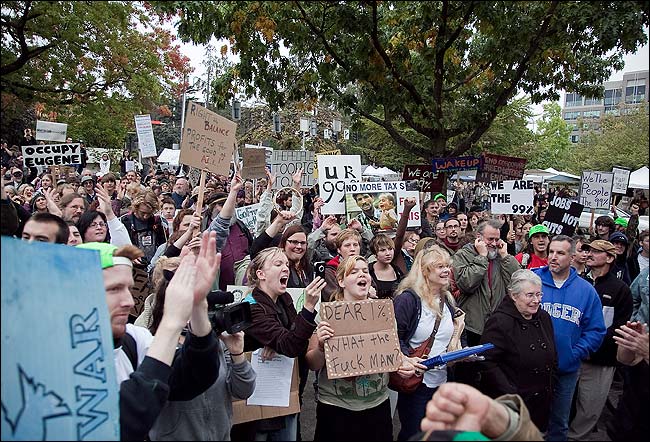
Occupy Eugene Ongoing
Consensus model working so far
By Andrew Hitz and Camilla Mortensen. Photos by Rob Sydor
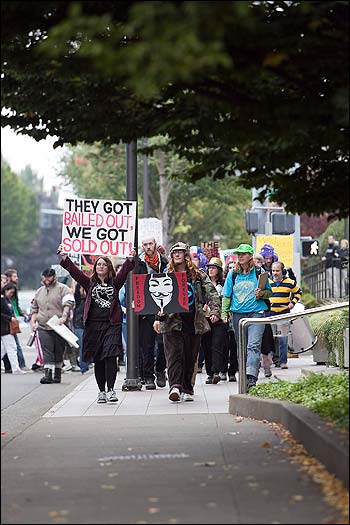 |
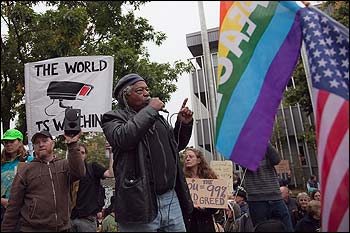 |
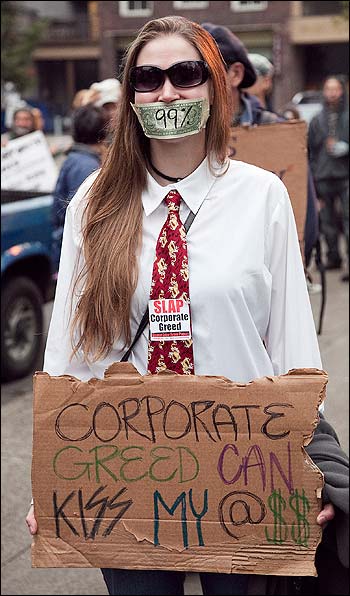 |
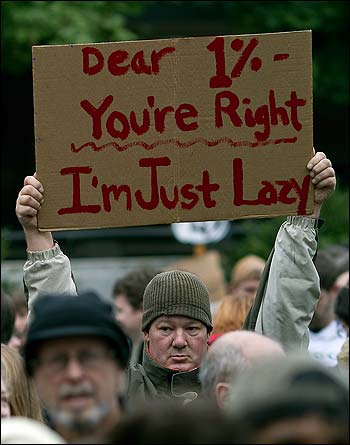 |
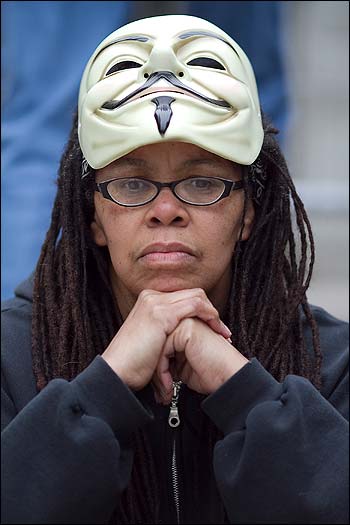 |
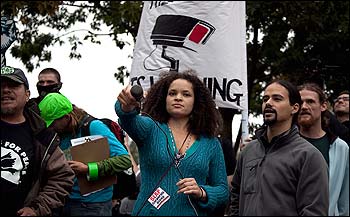 |
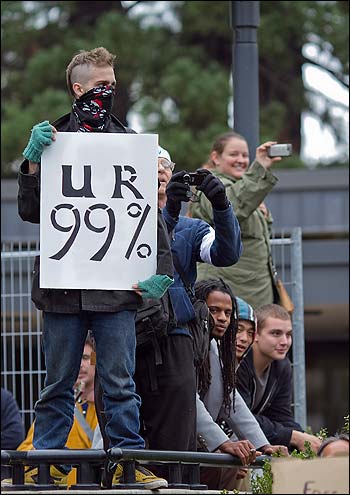 |
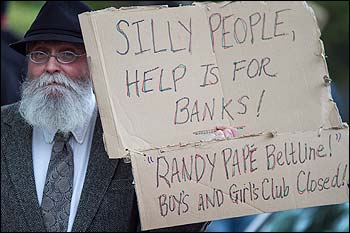 |
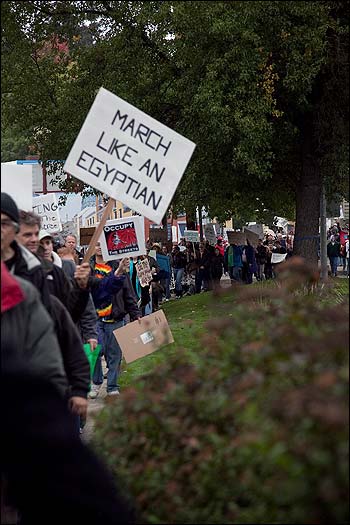 |
People in suits and people in casual clothes, cubical workers and day laborers, Duck fans and tie-dye hippies all made their way from the Wayne Morse Free Speech Plaza down to the Ferry Street Bridge Oct. 15 around 4 pm to Occupy Eugene. The crowd of 2,000 beamed smiles at each other — and high-fived the Eugene police — as they marched in solidarity with Occupy Wall Street.
The group has drawn together as a nonviolent movement for accountability that is not longer content to let “corporate and special interests run their government,” according to occupyeugene.com
“We — are — the 99 percent!” some chanted at the front of the crowd of almost 2,000. Eugene’s Saturday gathering was the 11th largest occupy event in the nation.
“The people — united — will never be divided!” chanted others farther back.
“I believe in independence, true independence and justice,” said a young woman who gave her name only as Ariel. “I think there is a serious lack of that at the moment. Everyone here is standing for so many different things but, I think when it comes down to it we can agree on those two things — as Americans.”
Lauren Regan of the Civil Liberties Defense Center said, “The group has consensed upon Occupy Wall Street’s demands, but not yet our own demands which may address local issues.”
Occupy Wall Street’s demands, which include disavowing corporations as individuals, “are pretty damn clear,” she says.
Regan adds, “This is a nonpartisan, very broad movement that includes everyone from Republicans to anarchists.”
Occupy Eugene, like Occupy Wall Street and other occupy gatherings, is run by a consensus process that Regan says is remarkably efficient. The webpage downtwinkles.com, which features a video of a Cascadia Forest Defender at Occupy Portland explaining the consensus process, is becoming a viral hit.
Occupy Eugene’s Saturday general assembly reached consensus on following the St. Paul Principles, which are principles of solidarity that came out of the 2008 protests at the Republican National Convention in Minnesota. The principles include not denouncing fellow activists and events and respect for a diversity of tactics and the plans of other groups.
John Flanery, a facilitator of general assemblies at the occupation and a We The People activist who participated in the march, said, “I’m tired of the collusion between big business and government am no longer willing to be ruled by the one percent.”
Cooperative efforts were made Saturday night by Food Not Bombs and The Last Stand Coffee Co., among others, to provide food and drink for those occupying; the more tech-savvy connected a live stream at http://occupyeugenemedia.org/livestream/ to the web. About 100 or so of the supporters have been meeting up on a daily basis for the general assemblies that occur at 7 am and 7 pm. Fewer have been spending the night at the occupation, but supplies like tents, sleeping bags and food abound, and a first aid tent is available.
How long the occupation will last is a matter of community dialogue and coordination, organizers say. Theoretically, the Saturday Market will take place on the Park Blocks next week as usual. This has caused concern for some artisans from the Saturday Market, a number of whom made a showing at the Sunday evening general assembly. Occupy Eugene says there has been an ongoing dialogue between the market and Occupy Eugene.
Embodied in a spirit of collective uprising and self-reliance is not only the recognition of a broken system, but a willingness to repair it, occupiers say. David Parziale, a senior environmental studies major at the UO, say this was the Eugene he had heard of before entering school.
“I came to Eugene because I thought this was a place where there would be a nice mix of between university and the activism that Eugene has a history of having,” he says. “I came here because I thought it was a place where there would be people rising up because there were unjust wars going on. This, finally, after I’m almost done with college — this is why occupy is happening. There’s finally people trying to speak up.”
|
|
|||||||
|
|
|||||||
|
Table of Contents | News | Views | Blogs | Calendar | Film | Music | Culture | Classifieds | Personals |
|||||||